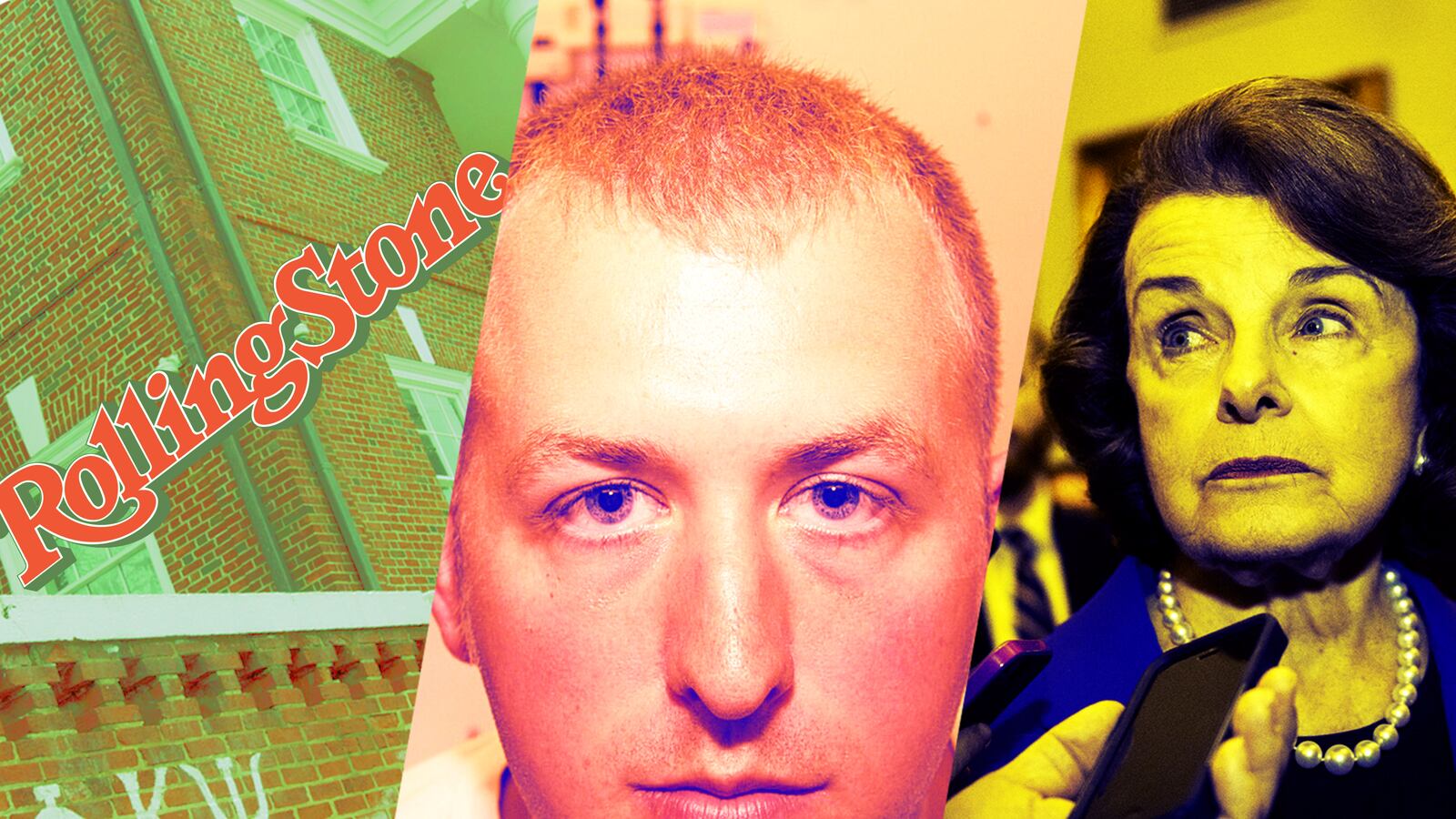From the Senate’s report on CIA torture to Rolling Stone’s tortured retraction of its blockbuster UVa rape story to what really happened to Eric Garner, December has been a bad month, especially for facts. In a country where talk is “cheap” and opinions are “a dime a dozen,” we give the facts special privileges and special status. But sometimes, the quest for facts lets us down, or leads us astray, and leaves us worse off than before, not better.
Right now, that traumatic experience just won’t quit. Yet instead of disbelieving that the facts will set us free, we cling to them as if they were spoils of war. We fight over their ownership and control, as if reality were a resource as scarce as the water and oil in Mad Max.
Jonathan Gruber, expert consultant, was dragged before Congress for laughing out loud that we, the people, couldn’t handle the facts, requiring fairy tales to swallow Obamacare. Actually, rather like Gruber, we feel rather icky about fairy tales. It is an insult to say we depend on them. The facts we see as unimpeachable. Fables, with their old-fashioned claim to deliver truths through fact-free storytelling, strike us as all too imprecise—smuggled-in opinions. We proud skeptics would rather trust the demonstrable facts than the alleged truth.
In the safety of the light of day, we positively revel in our facts. But when the darkness closes in, we actually run to fairy tales and fables. All it takes is a little uncertainty, a little fear, to discover that moral analogies can save us where breaking news cannot.
That’s a truth deep enough to withstand even the Hollywood treatment—from the forthcoming reboot of Mad Max’s grim world to the adaptation of Stephen Sondheim’s knowing Grimm musical Into The Woods. In his theatrical production, Little Red Riding Hood spends a whole song revealing the nasty price to be paid for trusting the facts to be good for us. She hints at her terribly teachable moment with a mercifully concealing tact altogether absent from the world of exposés:
But he drew me close And he swallowed me down, Down a dark slimy path Where lie secrets that I never want to know […]. And I know things now, Many valuable things, That I hadn't known before[…] take extra care with strangers,Even flowers have their dangers,And though scary is exciting,Nice is different than good.
Revealing what would otherwise be secret is the business of facts. It is now understood to be the purpose of journalism. In an arrogant delusion that we’re not just entitled to the facts but empowered by them, we have lost the fairy tale wisdom that what happens in the darkness should sometimes stay there, unknown. The deepest horrors of the torture report should remain de-publicized, for our sake, beneath redacted black boxes. The lurid details of rape accusations are not for glossy tabloids or rock’n’roll magazines but for the courtroom, where justice requires revealing what is better off concealed.
To many of us, that smacks of censorship, the highest offense to our pride in self-publicity. But no sooner are we given new bits of news than, like spoiled children with a new toy, we start smashing our playmates in the face with them. Instead of drawing us together, enlightened and informed, the Senate’s incomplete torture report and Rolling Stone’s inaccurate rape report have split us apart in a wrathful struggle over what counts as a fact.
Contrary to the belief that lies behind our public warfare, breaking news is not a moral act as liberated from criticism as moral truth itself. Facts concern what really is happening to us; truths, who we really are. The student being raped is not her rape. The detainee being tortured is not his torture. We writers and readers obsessed with breaking news manage to break down this truth, no matter how fictitious a rape or how redacted a torture turns out to be. Had we learned Little Red Riding Hood’s lesson, we would know how the quest for new facts to wolf down leads to a terrifying reversal of fortune.
It’s a moral analogy just as applicable to December’s most adventurous real-life ginger—Charles C. Johnson, the proprietor of Gotnews.com. With a nose for bogus facts, Johnson sets out to break the Internet by breaking news. Unfazed by Rolling Stone’s unnerving allegations of gang rape on campus, however, he wound up fighting fake facts with fake facts—posting pics of the “real” young woman profiled in the story, only to admit that they were, in fact, possibly not really her.
Johnson has become the latest human battleground in our rancorous fight over facts, where human truth is cast aside in the pursuit of human power. "To report the truth is a revolutionary act," he has tweeted, revealing what happens to our nose for truth when all we can smell are bloody facts in the water. In its original, the quote belongs to Orwell, but he added the important qualifier that truth-telling amounts to revolution only “in a time of universal deceit.”
The more obsessed with facts we get, the more credulous we become, it’s true. But the more we see lies everywhere, the more we conclude that we can’t restore reality without breaking some eggs. "The liberated soul does not cease to act, to think, to create, to instigate revolutionary flows." That’s not Johnson or Orwell—it’s Che Guevara. Who’s to say what constitutes the truth about revolutionary acts and flows? Those unfortunate enough to be caught on the murderous end of the stick.
Just as therapy can be anything, including state torture overseen by expert psychological consultants, journalism today can be whatever tears the clothes off reality—laying bare the facts, however scarring, however irredeemable, however hazardous to our fragile decency. Instead of speaking truth to power, the media—social media every bit included—is becoming a Hobbesian wasteland, a war of all against all every bit as mad as Max.






